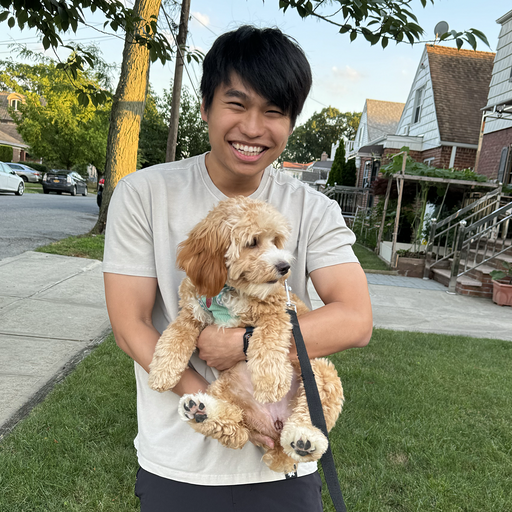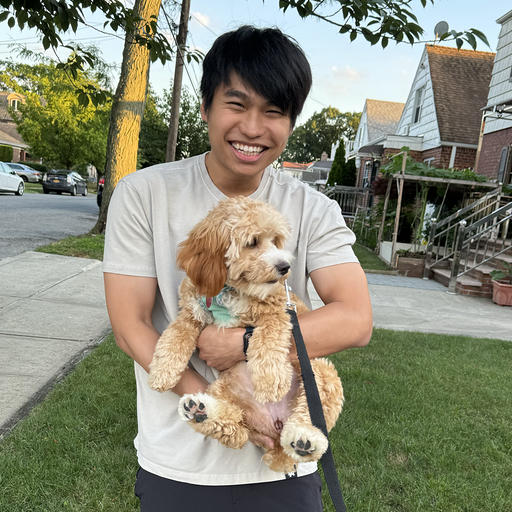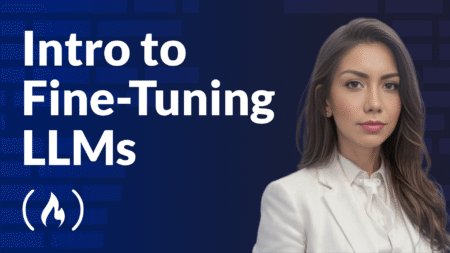In “Away From the Keyboard,” MongoDB developers discuss what they do, how they keep a healthy work-life balance, and their advice for people seeking a more holistic approach to coding.
In this article, Kyle Lai describes his role as a Software Engineer 2 at MongoDB; why he’d rather not be like the characters on the TV show, Severance; and how his commute helps set boundaries between his professional and personal lives.

Q: What do you do at MongoDB?
Kyle: Hi! I’m an engineer on Atlas Growth 1, where we run experiments on Atlas and coordinate closely with marketing, product, design, and analytics to improve the user experience. Atlas Growth 1 is part of the broader Atlas Growth engineering teams, where we own the experimentation platform and experiment software development kit, allowing other teams to run experiments as well!
The engineers on Atlas Growth are very involved with the product side of our experiments. We help the analytics team collect metrics and decide if a given experiment was a win. Sometimes, seemingly obvious positive improvements can turn out to be detrimental to the user flow, so our experimentation process allows us to learn greatly about our users, whether the experiment wins or not.
Q: What does work-life balance look like for you?
Kyle: Work-life balance for me means that I won’t be worrying about responding to messages or needing to open my laptop after work hours. It also means that my teammates equally respect my work-life balance and do not expect me to work during non-work hours.
Q: How do you ensure you set boundaries between work and personal life?
Kyle: Generally, for me, it’s more difficult to set boundaries between work and personal life when I’m working from home, so I try to come into the office most days. My commute also provides me with time to wind down and signal that work is over for the day. In a way, the drive to and from the train station allows me to transition to getting into the mindset for work or to decompress at the end of the day.
Q: Has work-life balance always been a priority for you, or did you develop it later in your career?
Kyle: As someone who is early in my career, work-life balance is something that I’ve grown to appreciate and see as a priority in my life. It allows me to enjoy my personal life, and definitely contributes to a healthier me and a healthier team.
Q: What benefits has this balance given you in your career?
Kyle: Our team has a weekly Friday hangout meeting, where we have a different question posed to us each week. One of the questions was based on the TV show, Severance. Would we choose to be “severed” like the characters in the show? They undergo a procedure that separates their work and personal brains—their work brains have no awareness of their personal lives, and vice versa.
As someone who hasn’t seen the show, but has heard about it from the rest of my team, I wouldn’t do it. Balancing my work and personal lives allows me to enjoy each side more. I’m motivated for the end of the week so I can enjoy the weekend, and I’m also excited to come to work with a fresh headspace on Mondays, since I am not overworking during non-work hours.
Q: What advice would you give to someone seeking to find a better balance?
Kyle: I’ll sometimes have the urge to continue working past work hours, as I’ll feel like I’m about to finish whatever task I’m working on very soon or think I can get even more done if I don’t stop working. That backfires pretty quickly.
You have to realize you can be easily fatigued and are not able to give your best work if you constantly keep working. A proper work-life balance will allow you to have a fresh start and a clear mind each day.
As for how to better separate work and personal life, I’d suggest changing notification settings on your phone for Slack, so that non-urgent work messages won’t tempt you to open your laptop. Another strategy would be to associate some event with a cutoff for checking work things, such as not reading messages once you’ve left the office or boarded the train. I’ve had teammates tell me they delete Slack from their phones when they’re on vacation, which is a good idea!
Thank you to Kyle Lai for sharing these insights! And thanks to all of you for reading.
For past articles in this series, check out our interviews with:
Interested in learning more about or connecting more with MongoDB? Join our MongoDB Community to meet other community members, hear about inspiring topics, and receive the latest MongoDB news and events.
And let us know if you have any questions for our future guests when it comes to building a better work-life balance as developers. Tag us on social media: @/mongodb #LoveYourDevelopers #AwayFromTheKeyboard
Source: Read More


